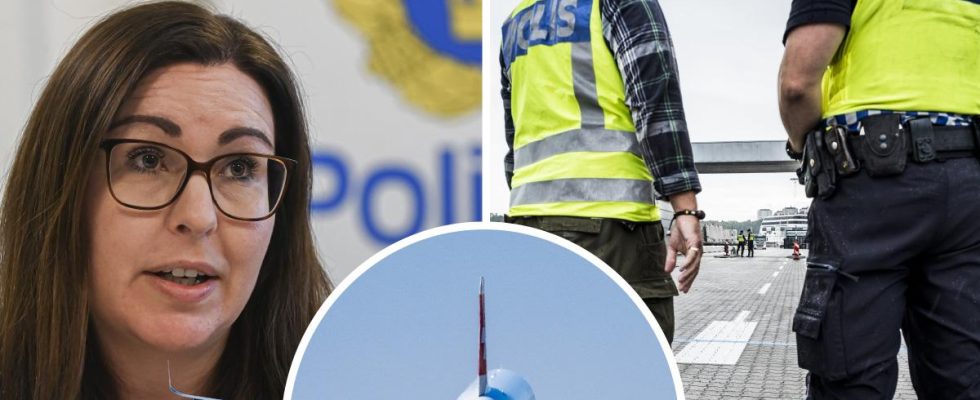Published: Less than 40 min ago
The police must greatly increase the number of ID checks in order to deport more people from Sweden.
At the same time, refugees end up in limbo – when their home countries refuse to accept them.
– It has been next to impossible for us to enforce to Afghanistan, says Anna Garphult, deputy head of the border police.
One Ethiopian man on the way to the dentist looking for a parking space. The man makes a wrong turn and is stopped by the police. The police take the opportunity to carry out an immigration check, find that the man is undocumented and take him to the detention center in Märsta.
Two months later, he is deported together with his daughter.
The incident occurred at Fridhemsplan in Stockholm on January 19 this year. And if the government and the Sweden Democrats get their way, it will be repeated more and more often in the future.
IN The Tidal Agreement – the government’s agreement with the Sweden Democrats – the fight against the shadow society is at the center. The overall requirement already came from the previous government. Fifty percent more are to be deported this year, compared to 2021.
More checks to be made
No one knows how many are in Sweden illegally. The border police currently has around 13,000 cases and in around 9,000 cases the person is wanted. The key to finding more spells is extended checks.
The new government has given the police the task of carrying out at least 25 percent more internal checks on foreigners this year compared to last year.
– We have many police officers who are out and about in society and who meet these individuals in connection with, for example, traffic controls or criminal investigations. Then we want them to also check whether the persons have the right to be in Sweden, says Anna Garphult, deputy head of the border police.
Going to rent an airplane
How do you view the fact that more Swedes with backgrounds in other countries will be checked?
– We do this check in connection with other work, such as a traffic check. Then I don’t think you feel that you are being controlled in any additional way. And if you can show that you are Swedish, the check is cancelled.
In around 4,000 of the cases, the border police know where the person is, but have still not been able to enforce the deportation. According to Anna Garphult, the border police maintains a close dialogue with the government.
– We explain the challenges we have to succeed. We can streamline our operations and make better use of our resources. An example is chartering airplanes so that more people can travel at the same time. But what will make the biggest difference are readmission agreements or other types of agreements with these countries that have to accept their citizens.
“Impossible to Afghanistan”
Which countries are doing poorly today?
– Afghanistan does not work at all. And we have problems with Syria, Iraq and Somalia.
How many have been deported to Afghanistan in the past year?
– It has been almost impossible for us to execute in Afghanistan. We are working on finding solutions to that situation.
Is it realistic to believe that deportations there will be able to take effect in the near future?
– I cannot assess that. It certainly depends on developments in Afghanistan and a lot can happen in the world, says Anna Garphult.
Forced to turn
According to information given to Aftonbladet, Swedish personnel must travel to Somalia to try to negotiate with people at the airport. Sometimes you are forced to return with unfinished business. Something Garphult confirms.
– There are such trips and yes, it happens.
In our review, we have met people who voluntarily want to return, but who are left in limbo because their home countries do not issue travel documents.
– I don’t really recognize that picture. In the vast majority of cases, you can return if you wish. However, as I said, there are many that we cannot implement.
Is it frustrating?
– It is clear that where we have so many cases and do not achieve success, there can be frustration. But I perceive among the staff that they think they are doing very important work, says Anna Garphult.
